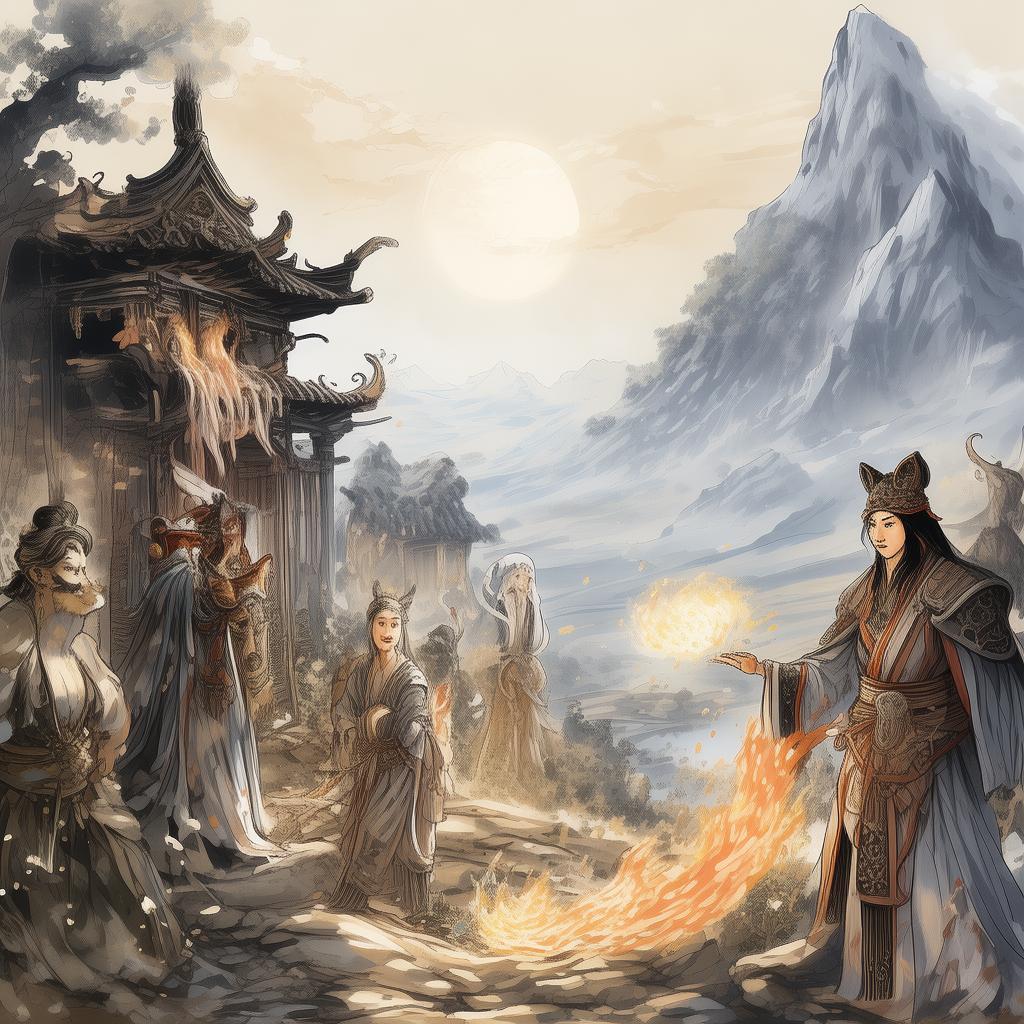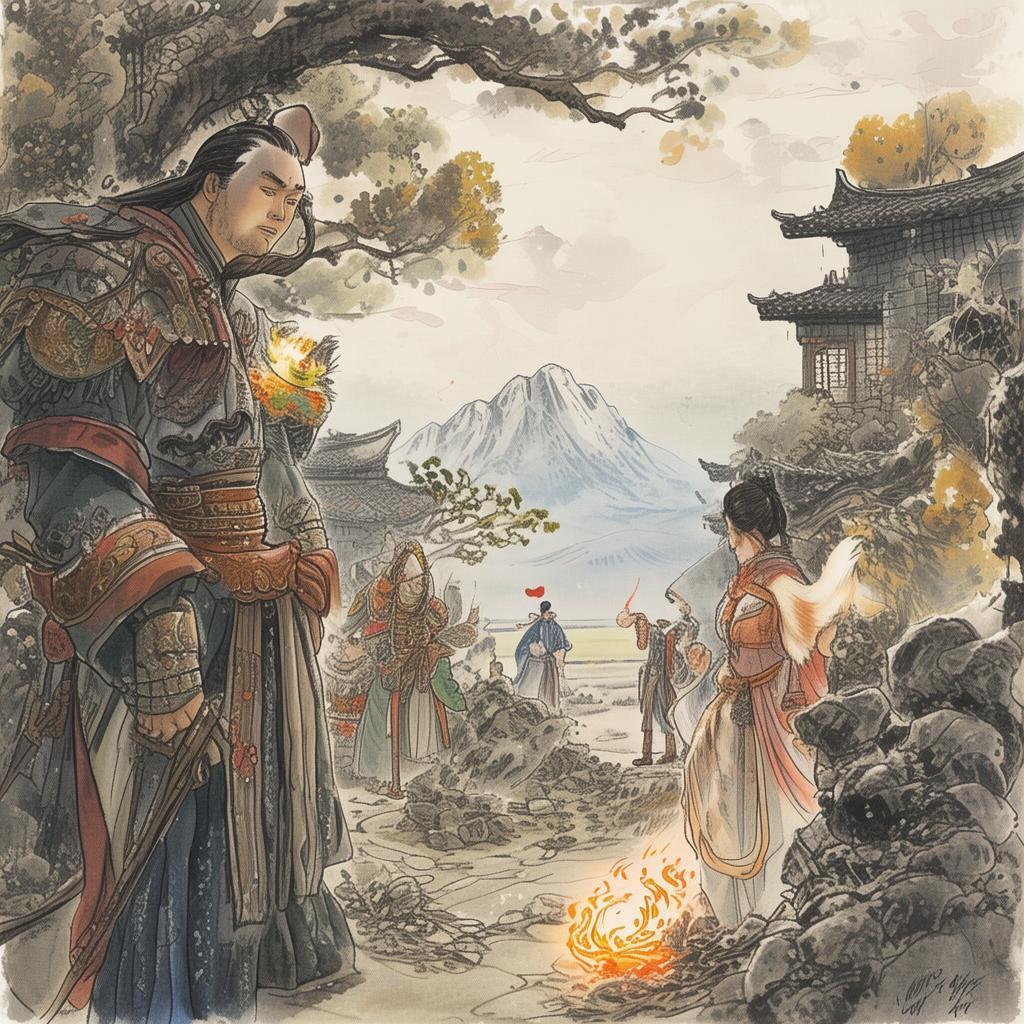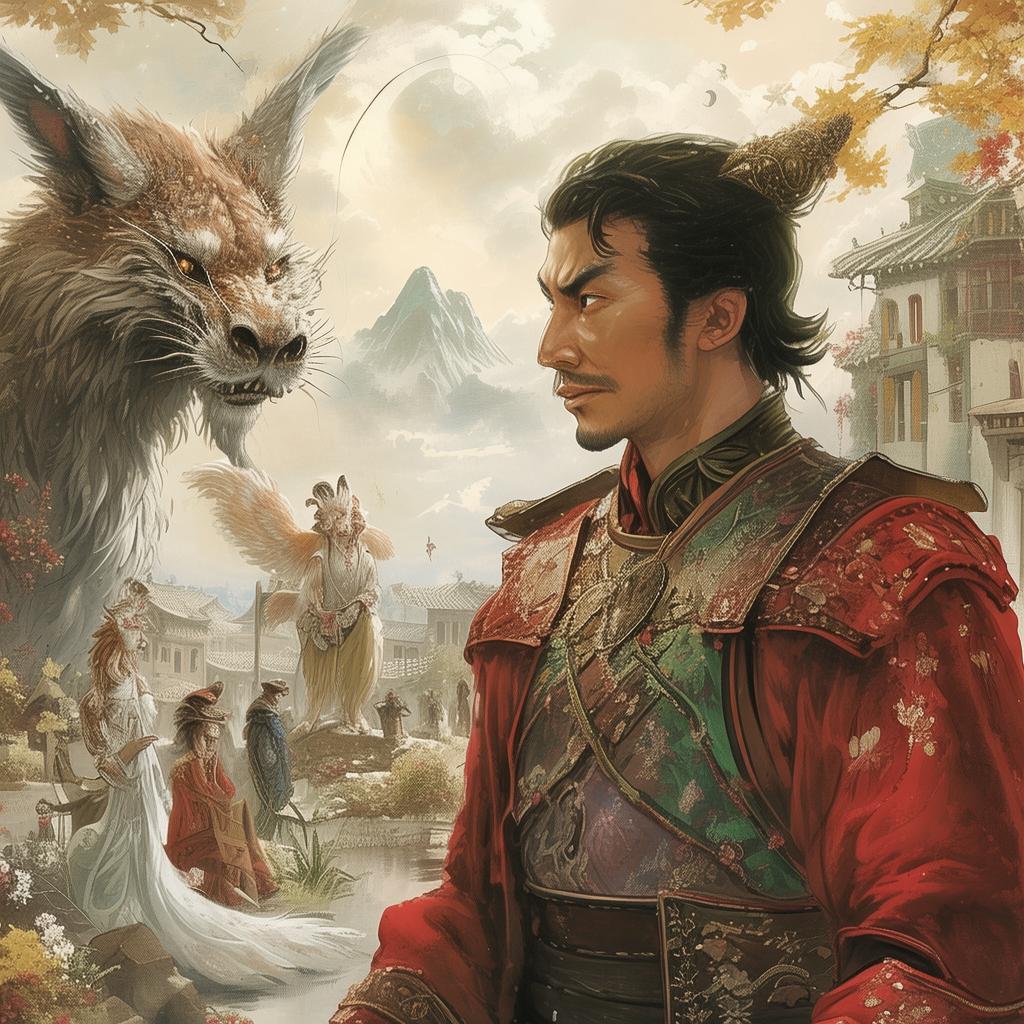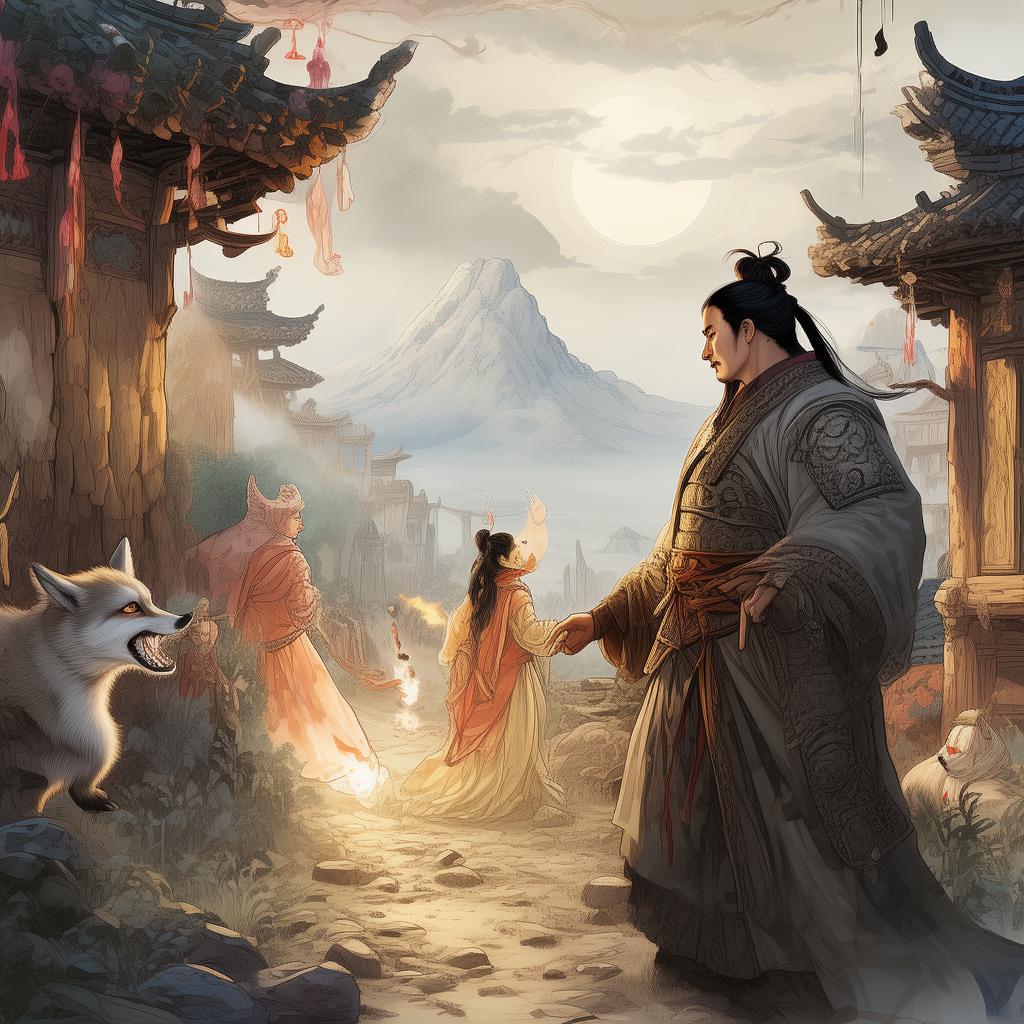Whispers of the Forsaken Wealth
In the heart of a bustling city, where the scent of ambition mingled with the smoke of factories, there lived two brothers, each with a heart as vast as the sky but as brittle as glass. Their names were Jin and Ming, and they were the sons of a prosperous merchant, a man whose wealth had grown as fast as the city itself.
From a young age, Jin had been the favored son, his mind sharp, his ambition as great as the tallest skyscraper. Ming, on the other hand, was content to let his brother take the lead, his spirit quiet, his dreams as silent as the night. But as the years passed, the balance shifted, and Ming's eyes began to gleam with a hunger that matched Jin's.
The old man, sensing the discord between his sons, decided it was time to pass on his wealth. He called them to his side and revealed his plan. He had divided his estate between them, but there was a catch. The wealth was not to be claimed until he passed away, and then it would be given to them under one condition: they must live together, sharing their lives, their joys, and their sorrows, for a year.
Jin's eyes sparkled with triumph, for he had always known Ming would be too weak-willed to refuse. Ming, however, felt a pang of dread, for he knew the weight of living with his brother, whose shadow he had always tried to escape.
The old man passed away, and Jin and Ming found themselves living under the same roof. The first few weeks were a whirlwind of activity, as they both tried to outdo the other in proving their worth. But as the months passed, the novelty wore off, and the true nature of their inheritance began to reveal itself.
The wealth was not the gold and jewels Jin had imagined. It was the old man's business, a factory that employed hundreds, a community that relied on its prosperity. The wealth was a responsibility, a burden, a chain that bound them to the factory floor, to the lives of their workers, to the city that had grown around them.
Ming, who had once found solace in the quiet of his own company, found himself overwhelmed by the noise of the factory, the complaints of the workers, the demands of the city. Jin, who had always thrived on the spotlight, began to feel the weight of his brother's presence, the reminder of his own weakness.
The cracks in their relationship began to show. Jin, unable to bear the burden of his brother's presence, began to treat Ming with disdain, belittling his contributions to the business, ignoring his concerns. Ming, in turn, became resentful, his silence growing into a cold, calculating silence that cut through the air like a knife.
The factory began to falter. Workers were discontent, the city's economy was suffering, and the once-prosperous business was on the brink of collapse. Jin, in his greed, sought to save the business by cutting corners, laying off workers, and driving the factory into the ground. Ming, seeing the destruction his brother was inflicting, tried to stop him, but his words fell on deaf ears.
One fateful day, the factory exploded, a tragic accident that took the lives of many workers. The city was in an uproar, and Jin and Ming were both accused of negligence. The wealth they had so eagerly sought was now a bane, a curse that had torn them apart and destroyed their lives.
In the aftermath of the disaster, Jin and Ming were left with nothing. The factory was closed, the workers were destitute, and the city was in mourning. Jin, who had once been so proud of his wealth, now found himself destitute, his spirit broken, his dreams of power and control gone.
Ming, though physically unharmed, was emotionally shattered. The silence that had once been his comfort was now a burden, a reminder of the pain he had caused. The two brothers, once so close, now found themselves on opposite sides of a chasm, their friendship, their family, and their wealth gone forever.
As they stood together, the weight of their actions upon them, Jin looked at Ming with a mixture of sorrow and anger. "I never wanted this," he whispered, his voice filled with pain.

Ming, his eyes glistening with tears, nodded. "Neither did I, brother. Neither did I."
The brothers, once the pride of the city, now stood as specters of their former selves, their lives consumed by the wealth that had been their undoing. And in the quiet of that moment, they realized that the true cost of their inheritance was not the money they had lost, but the lives they had destroyed, the dreams they had shattered, and the love they had abandoned.
The tale of Jin and Ming became a cautionary one, a story that echoed through the city, a tale of the perils of wealth and the depths of despair that lay beneath the surface of even the most prosperous of lives.
✨ Original Statement ✨
All articles published on this website (including but not limited to text, images, videos, and other content) are original or authorized for reposting and are protected by relevant laws. Without the explicit written permission of this website, no individual or organization may copy, modify, repost, or use the content for commercial purposes.
If you need to quote or cooperate, please contact this site for authorization. We reserve the right to pursue legal responsibility for any unauthorized use.
Hereby declared.









